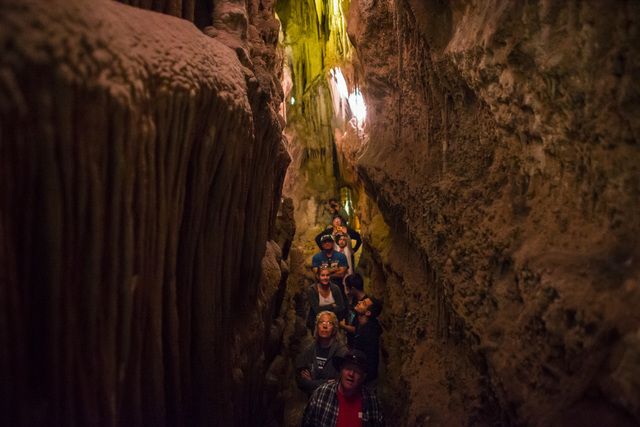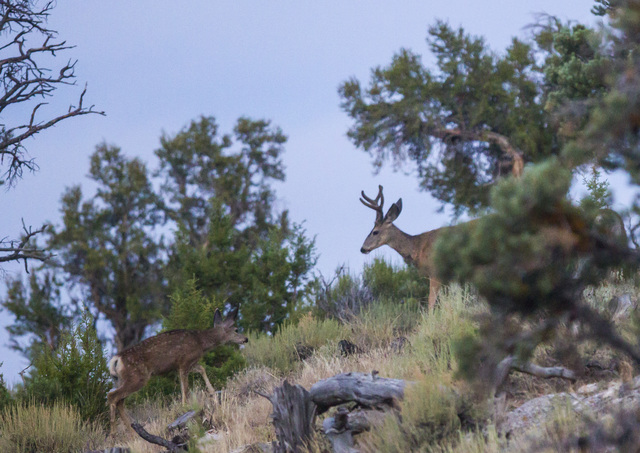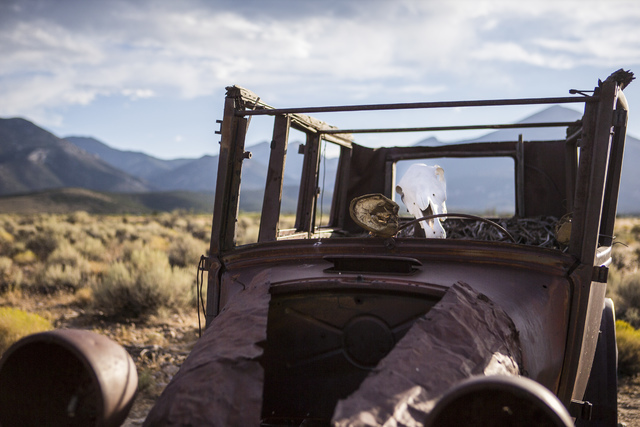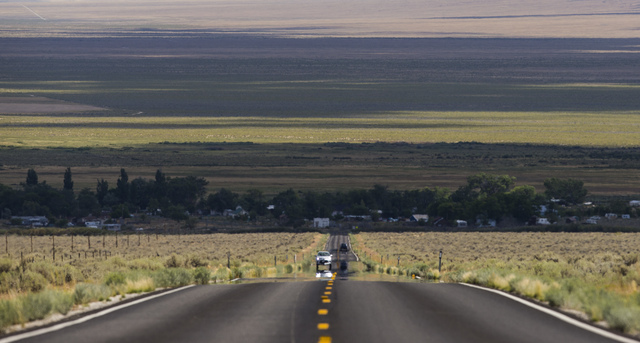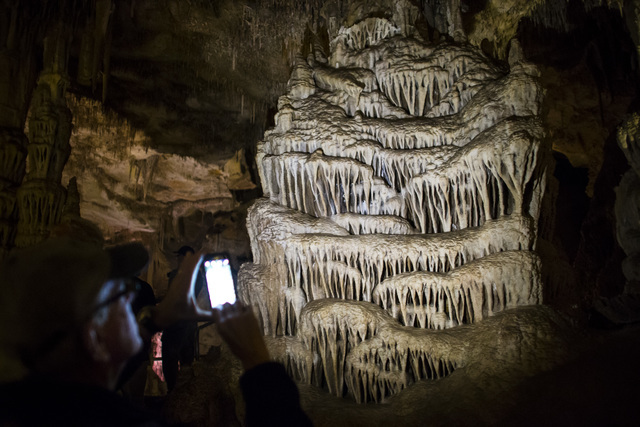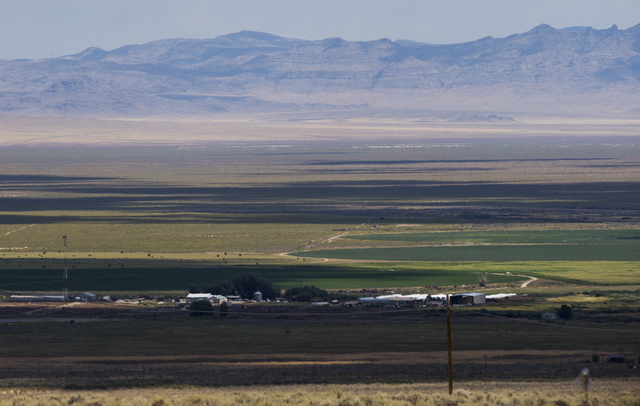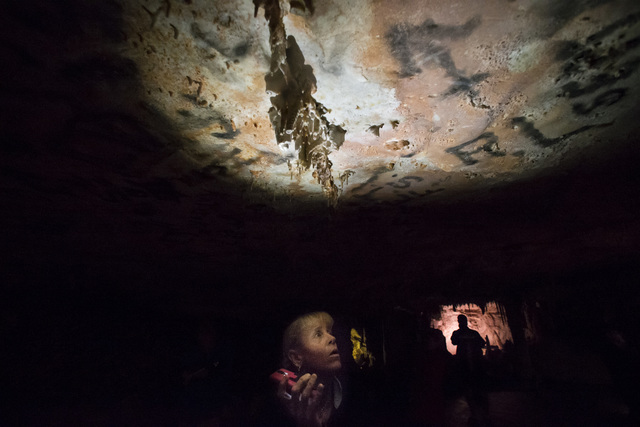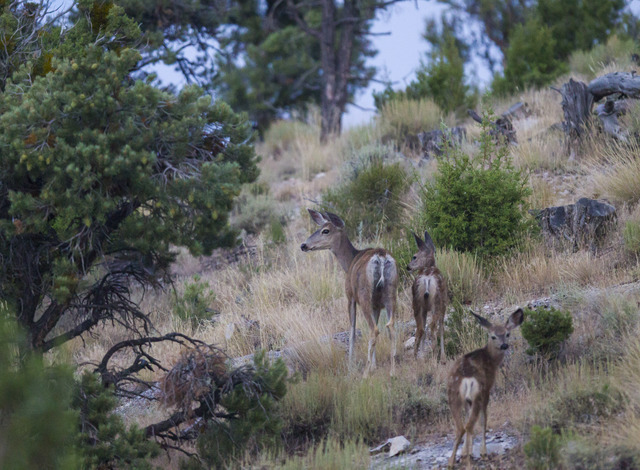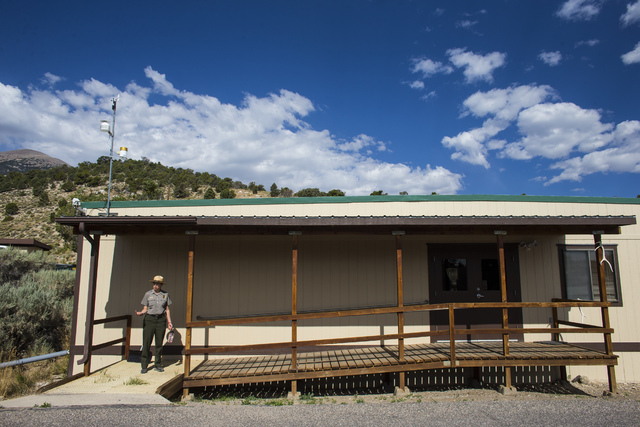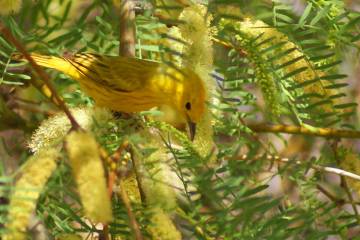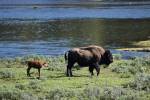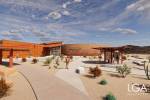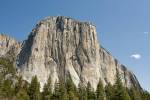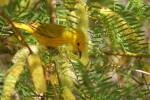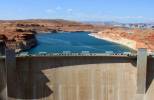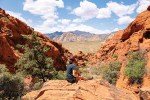Living at Great Basin National Park in Nevada offers beauty, isolation
Annie Gilliland loves her daily commute, a stroll of a few hundred feet along a dirt path linking the Lehman Caves Visitor Center at Great Basin National Park with the park’s staff housing area, during which she’s usually joined by nothing more than wind moving through the trees and the rare rattlesnake or other park creature taking its own constitutional.
Bryan Hamilton’s commute is charmingly peaceful, too. He lives outside the park in Baker and his office is just down the road from the home he shares with his wife, Jenny, and their three children. On days when he isn’t office-bound, Hamilton’s commute can take him to just about anyplace animals roam throughout the 77,100-acre park.
Gilliland and Hamilton work at Nevada’s only national park, and the stress-free commutes and quiet surroundings are the perks of living and working in one of the country’s least-busy national parks.
This week’s 100th anniversary of the national parks presents the perfect occasion for reflecting on lives spent primarily outdoors amid nature’s beauty.
While President Ulysses S. Grant signed a bill into law on March 1, 1872, that made Yellowstone National Park the country’s first national park, it wasn’t until Aug. 25, 1916, that President Woodrow Wilson signed the bill creating the National Park Service.
Today, the park service manages more than 412 properties, including 59 national parks and a nation-spanning roster of historical parks, historical sites, national monuments, national battlefields, military parks, preserves, reserves, recreation areas, seashores, parkways and lakeshores.
Great Basin (www.nps.gov/grba) became a national park on Oct. 27, 1986. According to Nichole Andler, chief of interpretation and spokeswoman for Great Basin, about 117,000 people visited the park in 2015, placing it in the bottom 20 percent of visitor counts among the country’s national parks. In comparison, Utah’s Zion National Park — a favorite day trip or weekend getaway among Southern Nevadans — had more than 3.6 million visitors last year and ranks as one of the country’s most-visited national parks.
It’s this scarcity of visitors and the park’s remote location — about a five-hour drive from Las Vegas on mostly two-lane roads — that make Great Basin beloved by hikers, backpackers and campers, even as they pose challenges for the park’s rangers and staff.
Gilliland, 28, worked as a seasonal National Park Service ranger for four seasons — her resume includes stints at Canyonlands and Yellowstone national parks, and her in-between jobs included one stretch as a professional dog walker — before becoming a full-time ranger at Great Basin on Aug. 7.
Gilliland grew up in Virginia and, as a kid, enjoyed traveling to national parks with her family. By the time she was a teenager, “I figured out I wanted to be the rangers who talk to everybody,” she says. “I think it was kind of like teaching, but in a less formal environment. And then you just get to live and work in some of the most beautiful places and share a place like that with other people.”
But Gilliland initially pursued other interests, including a bachelor’s degree in English. While working toward a graduate degree in environmental humanities at the University of Utah, Gilliland learned that the National Park Service offered internships. She landed one and found “pretty much all I wanted.”
As an interpretive ranger and lead astronomy ranger at Great Basin, Gilliland’s job is to “interpret the resources to visitors. We do all of the programs. We do the guided walks and the tours.”
“A lot of people, I think, assume all (rangers) are law enforcement. We’re the fun rangers, the nice ones,” she jokes. “If it gets bad enough, you go to the not-so-nice ones.”
Hamilton, 40, is from Ohio and has been working for the National Park Service for 16 years. Except for a season at Carlsbad Caverns National Park, he has spent his entire park service career at Great Basin and met Jenny — who also worked in the park — the year he arrived.
As a wildlife biologist, much of Hamilton’s work is done in the field, studying such park inhabitants as sheep, bats and — his favorite — rattlesnakes (he keeps two of them in his bedroom at home for research). But Hamilton retains a bit of his early park service experience as an interpretive ranger and enjoys interacting with guests.
“People love wildlife in the parks and love it anytime you can show them something or teach them something interesting, whether it’s about snakes or bats or bighorn sheep,” he says.
While Great Basin offers such attractions as tours of Lehman Caves, a Wheeler Peak scenic drive, picturesque overlooks and stargazing programs — the skies above the far-from-civilization park are among the darkest anywhere — it’s a hiking-heavy park, Gilliland notes.
The park’s wilderness orientation creates a working vibe different from that employees experience at busier, marquee parks in the NPS system.
“At Yellowstone, 90 percent of people never make it more than 100 feet from the road,” Gilliland says. “That’s a huge difference here. You have to get out of your car. This, I feel, is much more calm and quiet.”
“By the time (visitors) get here, they’ve earned it, in a way,” Hamilton agrees. “And we’re pretty encouraged our park visitors keep going up year after year. The solitude. The dark skies. The biodiversity. They do appreciate the value that it has.”
Great Basin has about 30 permanent staff members, as well as another 40 seasonal staff members and interns. Those staff members must become accustomed to living in such a remote locale among people who likely aren’t just co-workers, but neighbors, too.
Gilliland, for example, shares a rented three-bedroom house in the park’s staff residence area with a roommate. It’s a plain but well-maintained home with a government/lowest bidder feel that sits along a woodsy oval street in an area that brings to mind summer camp cabins.
Gilliland laughs. “That’s why a lot of people say the park service is like summer camp for adults.”
“You do have to make your own fun,” Gilliland says. “So a lot of us do outdoor stuff. We hike and camp and have campfires in places where they’re allowed. A lot of cookouts and just, also, going to people’s house to watch movies and things you can do anywhere.”
Gilliland is single and concedes that being a park ranger isn’t conducive to meeting people.
“If you’re interested in looking for someone, this is not going to be an easy place to do that.” she says.
“Some people here, at least people who are in permanent jobs, are already married and actually have little kids,” she adds, but even that “can be a challenge. You have to, I guess, decide what your priorities are.”
Gilliland says it helps that so many at Great Basin have spent time within the National Park Service and “already know that you just need to get along with people.”
‘But everybody knows everybody’s business,” she adds, and sometimes “you just take a night off from being social. People are understanding if you’re, just, ‘No, I need me time.’ ”
Just outside the park, Hamilton and his family live in a manufactured home that they’ve made so cozy that it’s hard to tell. Baker is “a tough place to meet people,” Hamilton says. “To try to get somebody to come out here, miles from nowhere, and convince them this is a dream place to live is challenging.”
Hamilton’s wife, Jenny, is from Eskdale, Utah, and began working in Great Basin when she was 17. Having grown up in and around the park and “being here almost 30 years, I’ve had plenty of time to adapt to it,” she says. “But I find there are people who get here and it’s just too remote for them.”
Rangers and staff at Great Basin have to be comfortable with the park’s relative isolation, Gilliland says. “You have to like it, and I guess I do.”
Still, she notes, “I traveled recently to San Francisco for training, and I was blown away to be in a city again and it was great. But I do like to be out in the wilderness.”
More practically, working at Great Basin requires keen organizational skills. For example, “grocery shopping is an all-day affair. People will go to Ely or Delta (Utah), which is over an hour,” says Gilliland, who enjoys cooking and says everybody she knows has three coolers to use when transporting perishables home.
Jenny Hamilton works one day a week doing therapeutic massage in Ely and takes care of grocery runs then, stocking up on two weeks’ worth of supplies at a time.
Meanwhile, doctor visits can mean a day trip to Provo (about 200 miles) or Salt Lake City (about 250 miles) in Utah or an overnighter to Las Vegas, and Jenny Hamilton says that when a trip to Las Vegas or Salt Lake City is required, it will include other such errands as visits to Costco, too.
Self-reliance is a must and do-it-yourself skills are handy. A few weeks ago, Bryan Hamilton was working through a plumbing problem at home.
“It’s not like there are people who are wild about driving 50 or 100 miles for a house call,” he says. “Same thing with cars. If a car breaks down, you figure out how to do it yourself or get someone else.”
Even having fun can involve a surprising degree of planning.
“You talk about date night,” Jenny Hamilton says. “Where are we going to go? Sixty miles you’ve got to go? Really?”
But, she adds, laughing, ”we usually have an annual girls’ weekend, where we all go to Las Vegas. It’s all about balance.”
There are parenting challenges, too. By the time the Hamiltons’ children — Willow 2, Isaac, 6, and Ava, 9 — graduate from high school, they’ll have completed segments of their schooling in both Nevada and Utah, and, some years, will have taken bus rides of an hour each way to attend classes.
On the other hand, having a national park in the backyard offers the kids unique playtime opportunities. Bryan Hamilton says the kids have seen parts of Great Basin National Park few visitors ever will. They’ve been in bat caves, climbed mountains, gone swimming in out-of-the-way lakes and seen bighorn sheep and rattlesnakes in the wild.
“They probably take it for granted now,” he says. “But I think when they get older, they’ll really appreciate it more.”
Hamilton says that while he and Jenny have discussed lifestyle changes they may have to make one day for family reasons, he loves it that “I can be outside, catching animals, five minutes from the house.”
Gilliland, who’s just starting her full-time National Park Service career, says she’d love to work one day in Alaska, but wants to learn more about Great Basin before that happens. For now, she’s happy to land a permanent position and happy to be at Great Basin.
“I really like working public lands,” she says. “I really like the informal teaching, where you work with people and help them to learn, but it’s not in a classroom setting.
“And,” she adds, smiling, “you get to live in beautiful places.”
Read more from John Przybys at reviewjournal.com. Contact him at jprzybys@reviewjournal.com and follow @JJPrzybys on Twitter.
They're having a party
Rangers and staff at Great Basin National Park will join the National Park Service centennial celebration with a slateof programming on Thursday.
Scheduled activities at the park, about a five-hour drive north of Las Vegas, include burial of a time capsule,dedication of the park's new observatory, a star party and other programs.
Created on Oct. 27, 1986, Great Basin's attractions feature numerous trail and off-trail hiking opportunities,camping, tours of Lehman Caves National Monument, the Wheeler Peak scenic drive and dark night skies perfectfor stargazing.
Great Basin's centennial celebration runs from 1 to 11 p.m. For more information and directions, visit the park'swebsite (www.nps.gov/grba/index.htm).



